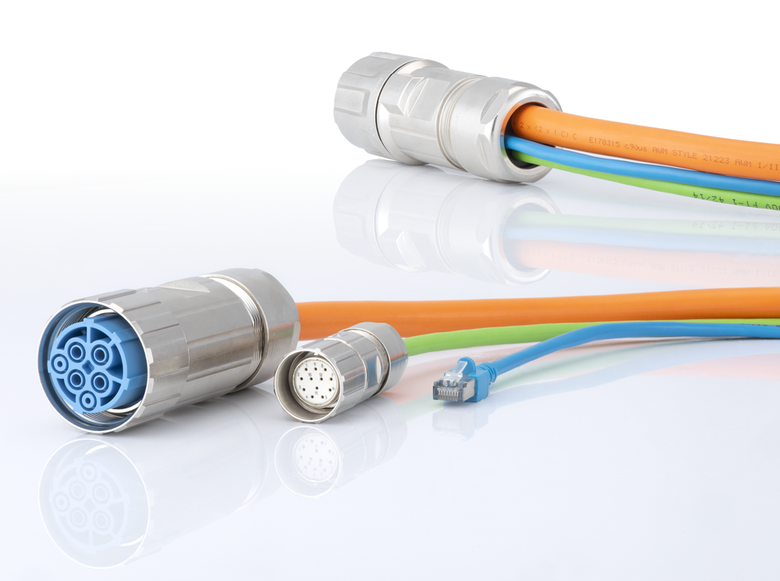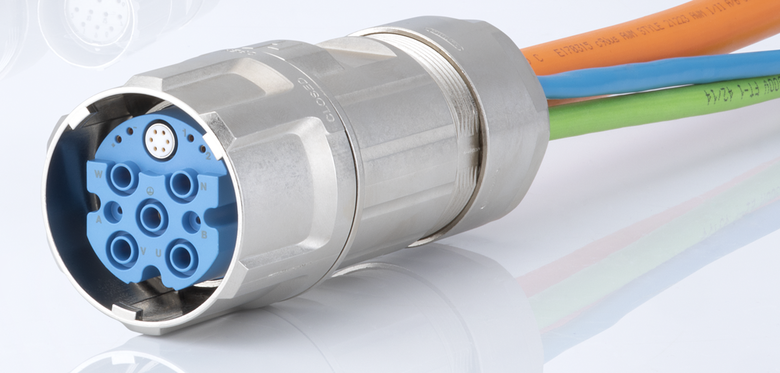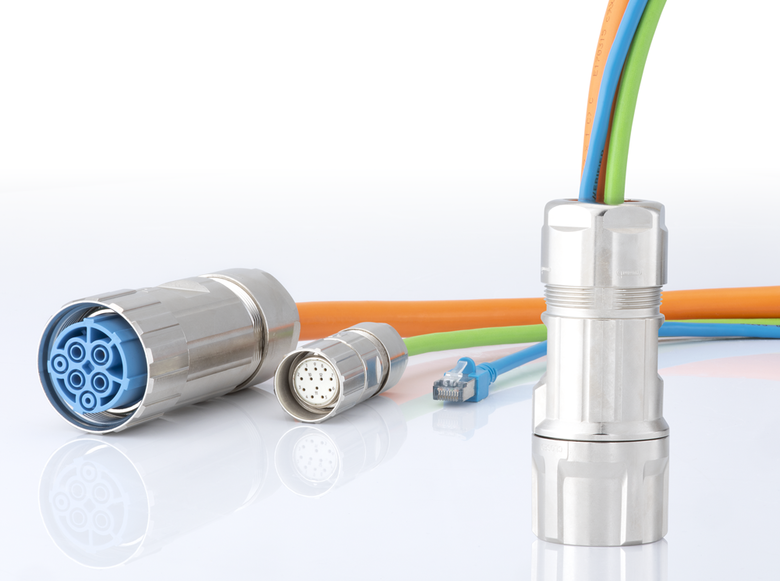
With the help of a special multi-insert, conventional cables can also be combined in a hybrid connector.
Hybrid connectors are gaining increasing acceptance on the market. More and more users are turning to this technology. This practical example shows how to use hybrid technology and still continue to use conventional cabling.
Challenge
The trend towards miniaturisation in automation continues. Drives and controls are becoming smaller and smaller, and with them the installation space for connectors and supply cables. This is why hybrid connectors are gaining increasing acceptance on the market. What should be done if, instead of the costly one-cable solution (one-cable technology), the cabling should be retained with three conventional, low-cost cables? Such cables are often already approved and the user saves expensive approval processes.
Solution
The solution in this example consists of an M40 Hybrid connector and a special multi insert. This combination enables the merging of three cables into one connector. Three connectors become one. The M40 Hybrid replaces an M40 Power connector, an M23 Signal connector and an RJ45 data connection.
Advantages
The application with the hybrid connector has numerous advantages

| M40 HYBRID | Power | Signal | Ethernet |
| Number of contacts | 4 + PE | 4 + 2 | 2 |
| Contact diameter [mm] | 3.6 | 1 | 1 / 0.6 |
| Terminal cross section [mm²] | 2.5 – 16 | 0.14 – 1,5 | 0.14 – 1.5 / 0.05 – 0.34 |
| Nominal current [A] | 15 | 7 | 2 / 1.2 |
| Nominal voltage until [V~] | 630 AC / 850 DC | 150/300 | 30 |
| Test voltage [V~] | 4000 | 500/1500 | 500 |
| Data transmission | – | – | Cat5e |

A true powerhouse is the M 40 Hybrid, which can transmit data rates of up to 100 Mbit/s.